Search
Search Results

Image
Grave of Gustav Mahler
The grave of Gustav Mahler (1860-1911) in Grinzing, Austria.
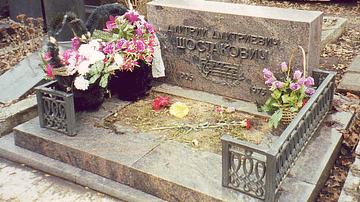
Image
Grave of Dmitri Shostakovich
The grave of the Russian composer Dmitri Shostakovich (1906-1975). Novodevichy Cemetery, Moscow.

Image
Juan Seguín's Grave and Monument
Juan Seguín's grave and monument in the City of Seguin, Texas. Photograph by Billy Hathorn, 2013.
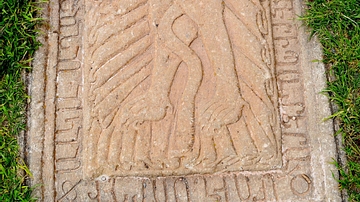
Image
Orbelian Grave at Noravank Monastery
This is a grave at Noravank Monastery in Armenia; it dates from medieval times and belongs to one of the Orbelian princes. The Orbelian dynasty dominated the political, cultural, and economic landscape of the Armenian provinces of Vayots...
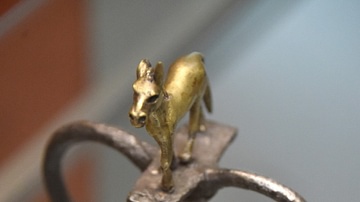
Image
Rein Ring from Puabi's Grave, Ur
The double ring is made of silver. This is surmounted by an electrum (an alloy of gold and silver) piece in the shape of a donkey or an onager. This reign ring was found fixed on the pole of a sledge, pulled by oxen, placed in Puabi's grave...
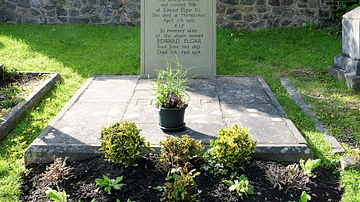
Image
Grave of Edward Elgar
The grave of the English composer Edward Elgar (1857-1934) and his wife Caroline. St. Wulstan's Church, Little Malvern, Worcestershire, England.

Image
Grave of Hector Berlioz
The grave of the French composer Hector Berlioz (1803-1869) in the cemetery of Montmartre, Paris.
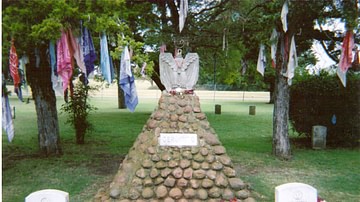
Image
Geronimo's Grave at Fort Sill, Oklahoma
Geronimo's Grave at Fort Sill, Oklahoma.
Photograph by Looper5920, 2005.
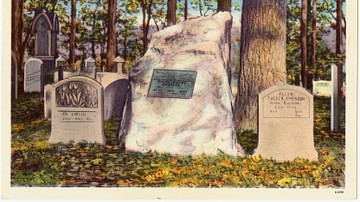
Image
Grave of Ralph Waldo Emerson
Grave of Ralph Waldo Emerson (1803-1882), Sleepy Hollow Cemetery, Concord, MA, postcard by Tichnor Bros. Inc., Boston, MA, c. 1930-1945.
Boston Public Library.

Image
Soldier Tending a Grave, Ypres, 1917
A photograph of a soldier tending the grave of a fallen comrade near Ypres after the Battle of Passchendaele (October-November 1917) in Flanders, Belgium during the First World War (1914-18).
Imperial War Museums